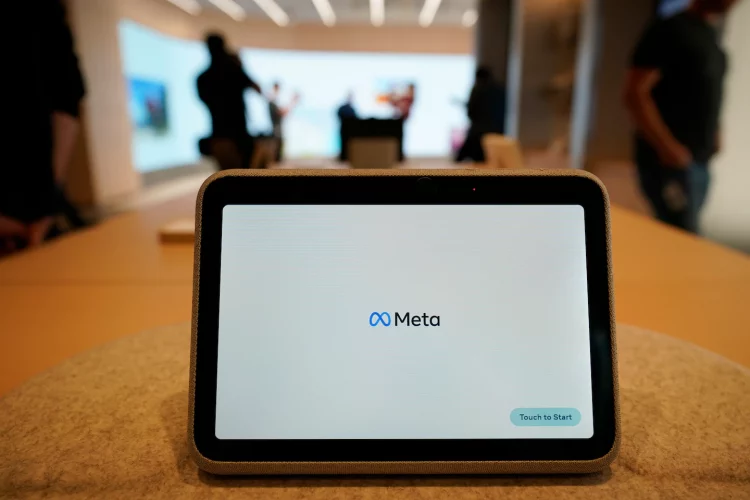Comment on this story
Comment
For months, Facebook Chief Executive Officer Mark Zuckerberg has touted the company’s long-term plan to transition from being primarily a social media company to the maker of the virtual reality-powered digital worlds known as the metaverse.
On Wednesday, Zuckerberg took detour from that journey to reiterate the company’s most immediate priorities: To foster social connections and deliver users the algorithmic-powered stream of content from creators that has made modern social media companies, namely TikTok, popular.
“I want to be clear that we are still ultimately a social company focused on helping people connect,” Zuckerberg said during a call with investors.
The statement comes amid news that Facebook parent company Meta suffered its first quarterly revenue decline in a decade a publicly-traded company. And Zuckerberg’s comments illuminates the company’s short-term survival strategy, as it faces unprecedented macroeconomic challenges along with specific threats to its business model.
Facebook executives warned that marketers are pulling back spending in part because of an uncertain economic environment, which has some experts warning a recession could be on the horizon. Meanwhile the company is facing intensifying competition for advertising dollars and users in the social media market from upstart apps such as TikTok and Snapchat. Facebook’s stock declined in aftermarket trading.
Zuckerberg’s rosy picture about the future of communication on its services arrives as the company invests in replicating the formula that has made TikTok take off among young users. Last week, the company announced an overhaul of its flagship social network, designed to elevate entertaining content from strangers over posts from their friends and family.
Instagram has also started recommending short-form videos, called Reels, in users’ feeds, alongside photos and videos from people they know. These changes triggered a slew of criticism in recent days, including a protest from Kylie Jenner, Kim Kardashian and other high-profile influencers, sharing an image declaring: “Make Instagram Instagram again.”
Appearing to respond to the criticism, Zuckerberg said the company still intends to create spaces for social connections, but also needs to adapt to the way people communicate on social media. Instead of interacting in comments on their feeds, users are more likely to send private messages to their friends, according to Zuckerberg. Reels makes up more than half the content that is re-shared into messages on Instagram, he said.
“This creates this flywheel of discovery and then social connection, and then inspiring those people to create more content themselves,” Zuckerberg said, touting the company’s continued investment in Reels, which he said is on track to make at least $1 billion in annual revenue.
In a bright spot, Facebook reported daily active users on its core social network rose 3% to 1.97 billion in the second quarter. Monthly users also rose about 1% to 2.93 billion, the company said.
Still, Zuckerberg and other executives pointed to looming financial challenges, including the continued impact of Apple’s new privacy rules, which aim to limit app makers’ ability to collect data on users to power their targeted advertising business.
In recent weeks, Facebook executives have issued a dizzying number of directives, outlining a new era of higher performance expectations and slowed hiring as the company emerges from the pandemic with a growing list of economic challenges. Facebook indicated Wednesday that it planned to decrease its expenses and slow hiring this year.
In the long run, Zuckerberg said Facebook will continue to invest in building out the so called metaverse, a place where the company envisions people will want to work, play and shop.
The metaverse will “enable deeper social experiences, where you feel a realistic sense of presence with other people no matter where they are,” Zuckerberg said.
The Federal Trade Commission sued the company on Wednesday to block its acquisition of Within, the maker of popular virtual reality games. The FTC argued that the deal would mean “Meta would be one step closer to its ultimate goal of owning the entire ‘Metaverse.’ ”
Facebook also announced on Wednesday a shake up among its highest leaders. Facebook Chief Financial Officer David Wehner will assume a newly-created role as chief strategy officer. Susan Li, the company’s current vice president of finance, will become the new chief financial officer. Facebook chief operating officer Sheryl Sandberg announced last month that she would be stepping down after 14 years.
Source by www.washingtonpost.com






























